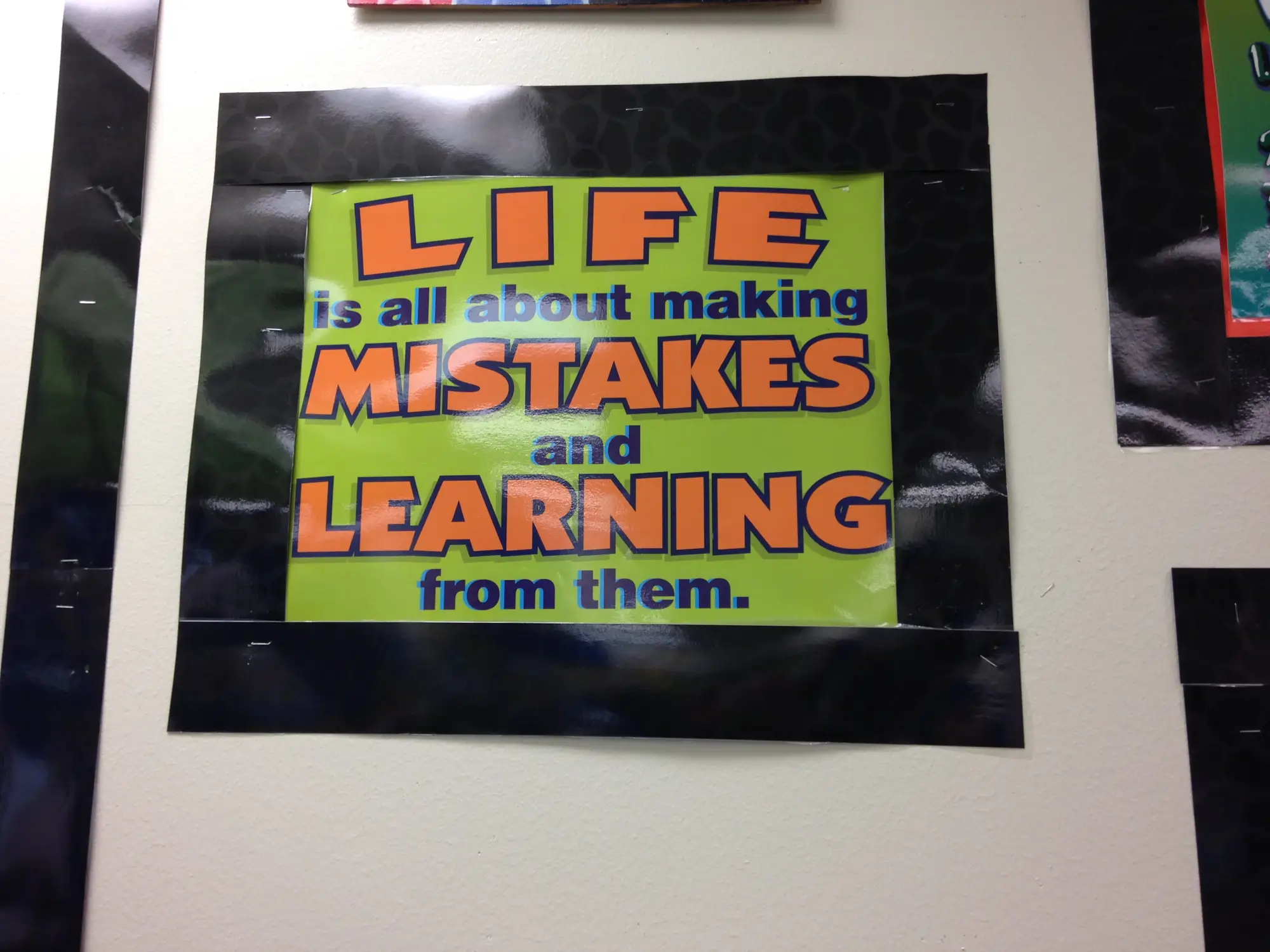Life is all about mistakes and learning from them. This is a poster I have in my room, and is one of the first things I tell my students at the start of a school year. We build mistakes into everything that we do. If I’m going to help prepare them for the future, it is dangerous to take away any possibility of failure. Instead, I have to teach them how to learn from their mistakes.

When grading papers, a bunch of red marks sends a message to students that they got the answer wrong. Often this shuts them down. There’s no learning after seeing that they got an answer wrong. Instead of sending a “wrong” message, I try to send a message of “not yet.” I say, “Ok, this one is not right yet. Let’s see where our thinking broke down.”
When I hand an assignment back to my class, we review it all together. I pick a variety of questions that students got wrong (usually there are patterns), and I write a few on the white board. I then ask if someone will volunteer to solve one. I reinforce that it doesn’t matter if they got the answer right or wrong – they can still share and help each other learn. Not calling out those who made the mistakes builds a culture of trust and security.
I also write problems and include the correct answers on the board. I ask if anyone made who a mistake can see where their mistake was, and if they’d be willing to share it with the group. We call these activities, “My Best Mistake.”
From day one we talk a great deal about how the brain learns, how synaptic pathways are built. Above my white board is a large sign that says, “…Yet”taken from Carol Dweck’s growth mindset. On the first day of school I tell the students they will learn a lot of new vocabulary, but this word is one of the most important words they will ever learn. For the very first “Best Mistake” activity, I ask who is brave enough to share a mistake they made. Normally in a classroom students will only share if they got the answer right. That is unhealthy. We talk about mistakes so often that it becomes the norm to share our learning process; students willingly get up and share their wrong answers. They’ll say, “I added the ones together, but I forgot to regroup. I should have decomposed the ones and moved a set of tens to the tens place.” They need to hear this self-talk and the self-talk of others.
Mistakes are how the brain learns. Phrases like “my best mistake” help students really understand that each mistake is helping them grow. Mistakes are not to be looked at as terrible, horrible things that happen to us. I intentionally (and sometimes unintentionally!) make mistakes in front of my students all the time. I follow it with, “Oh, ha, I got that wrong. Let me try again.” I want them to see mistakes as an important part of their education, which will help prepare them for the real world. After all, life is all about mistakes and learning from them!
Share with
Related Resources